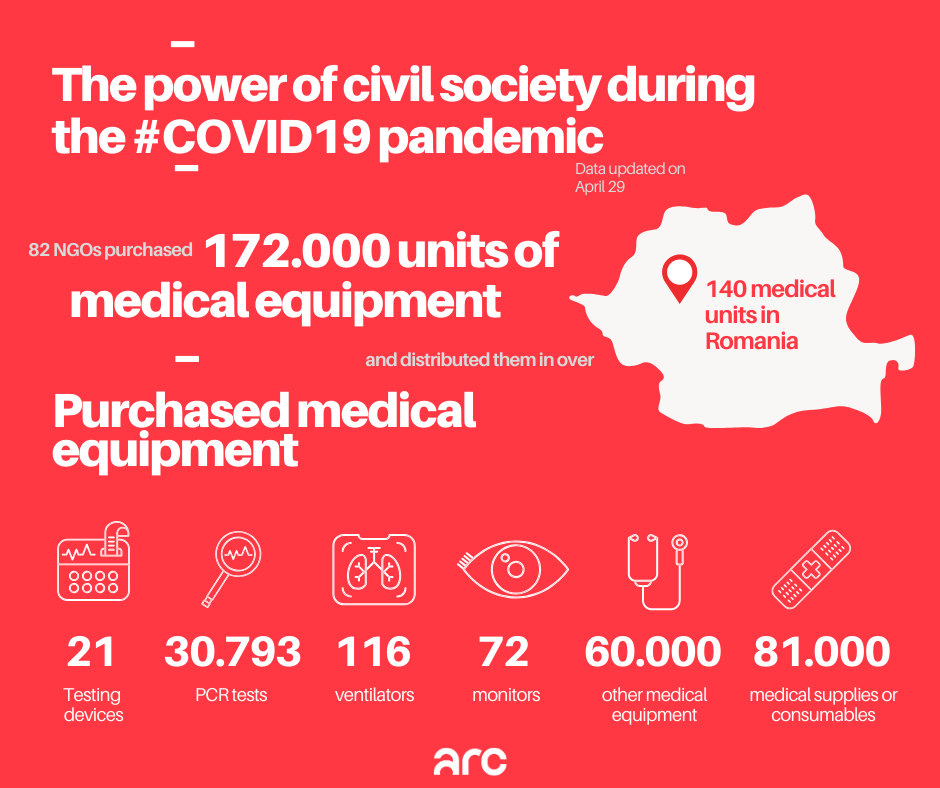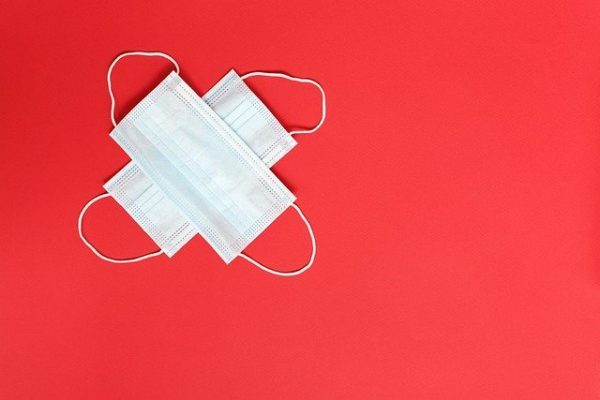
Charitable giving in Sweden reached a record high in 2019, boosted by gifts in Wills
June 3, 2020
F2F fundraising resumes in Norway yielding better public response than pre-Covid days
June 3, 2020Romanian NGOs have rallied to provide the country’s hospitals with urgent support and equipment during the coronavirus outbreak.
A survey carried out by the Association for Community Relations to assess the sector’s impact during the crisis found that in seven weeks, the 80+ NGOs that responded had purchased protective gear and medical equipment worth €13.95 million for hospitals, with more than 140 medical units receiving support. In many cases, it found, these organisations were the first to bring them this equipment, and to respond to their urgent needs.
Items bought included ventilators, Covid-19 PCR tests, protective suits, masks and gloves, defibrillators, decontamination tunnels, disinfectant and more than more than 10 tons of food and hygiene supplies. Equipment has been provided across the country.
Many NGOs started new campaigns or modified the programmes they already had running in order to raise funds to protect communities.
The sector provided an equal number of PCR tests to those carried out by the State throughout March, and has also helped to increase testing capacity across vulnerable border counties such as Iaşi, Nădlac, Deva or Timișoara. NGO support has also seen mobile hospitals implemented, increasing the care available for Covid-19 patients.
Call for state to collaborate
To strengthen the country’s Covid-19 response further, organisations from Romania’s third sector are now calling for the state to collaborate with civil society.
A press release signed by 33 organisations including Dăruiește Viață Association, Association for Community Relations, Zi de Bine Association, Children’s Heart Association, Federation of Community Foundations of Romania, Alba Community Foundation, and Bacau Community Foundation, is asking the country’s authorities to:
– Cooperate as transparently as possible with the non-governmental sector
– Communicate the needs of support hospitals and medical facilities that have a high risk of infection (psychiatric centres, dialysis and oncology points, etc.) so NGOs and state authorities can coordinate efforts without doubling them;
– Support the procurement process (logistics, diplomatic support) to enable more equipment to be ordered, at a lower price, from a single manufacturer;
– Make it easier for medical orders made by NGOs to cross borders within and outside of the EU;
– Recognise the impact that civil society has had during this time;
– Adopt a package of measures to support non-governmental organisations affected by the pandemic using the model of support offered to SMEs.
“The medical system concerns us and its strengthening is a priority”, says Dana Pîrțoc, CEO of the Association for Community Relations, one of the organisations involved in providing medical equipment and protective gears during COVID-19 pandemic.
”The major objective is to supply hospitals and protect the medical personnel, and this work cannot be done by NGOs alone, in the absence of the state. From the beginning of the pandemic, the organisations have been the first to cover needs throughout the country, before the state. Through their activities, the NGOs and companies have built networks of trust in the community that allowed us to know very quickly what the needs and resources were. That’s why we were able to act so quickly and efficiently.”





